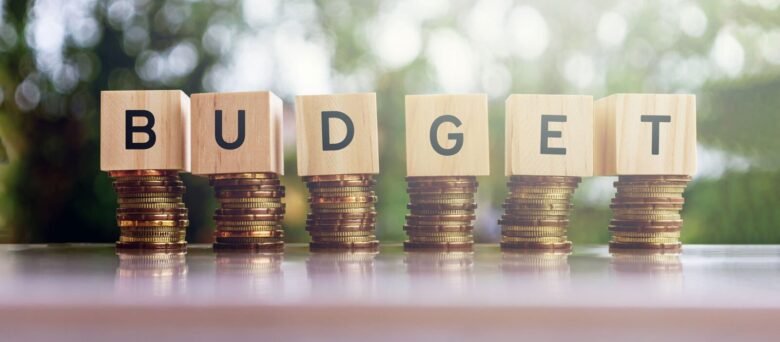Happy, sad, or something in between — the many emotions you feel throughout the day can cause you to spend your money without thinking about it.
Your emotions initiate spending all the time. Maybe you go out for celebratory drinks with friends when you’re happy about a raise, or perhaps you order new clothes to cheer yourself up when you lose out on a job opportunity.
Occasional splurges won’t make or break your finances. However, emotional spending can lead to financial problems if your wallet is always at the whim of your feelings.
Whether your feelings are positive or negative, emotional spending is a thoughtless habit that can get you into financial trouble.
What is Emotional Spending?
Emotional spending is a self-soothing measure when you feel a strong emotion. It’s often a knee-jerk response to negative feelings like depression, anxiety, or loneliness, but positive ones can also convince you to spend. You can spend money impulsively on new items or experiences as a way to ignore negative emotions or celebrate positive ones.
Emotional spending can become a problem if you are constantly reacting to your emotions and thoughtlessly spending your money. When you don’t pay attention to your budget, you can wind up spending way more than you can afford.
Next thing you know, you’re broke.
Dealing with $0 in Your Bank Account

What do most people do when they run out of money? They borrow a personal loan or take out a line of credit. These financial products can bail you out of tough situations by giving you cash upfront to cover urgent expenses. You may find some emergency financial loans online with flexible payment schedules that allow you to pay off a big expense over multiple weeks, months, or even years.
While loans may help in a pinch if you qualify, most online lenders aren’t your shopping buddies. An online line of credit or personal loan should be used as a backup to savings when you’re challenged by an urgent, unexpected expense you can’t ignore.
Suppose you use up all your savings fixing your car, only for your furnace to break down that same week. In an emergency like this, you might be able to fall back on a line of credit as a safety net. As long as you have credit available, you can draw against your line of credit to replace this essential appliance, paying it off in chunks.
Having a “just-in-case” loan sitting on standby for emergencies like this can come in handy. After all, everyone makes mistakes, and nobody can predict exactly what will go wrong in their life. But if you regularly rely on your line of credit to get you out of overspending jams, you can easily slip into a cycle of debt that ties up your limit and affects your credit score.
In other words, your emotions are getting the better of your finances.
How to Curb Emotional Spending Before You’re Broke

Here’s how you can prevent your emotions from stealing your hard-earned money.
Understand Your Emotional Triggers
Does scrolling through social media make you buy a new skincare routine? Does a tough day at work make you splurge on takeout most nights of the week? Pay attention.
Knowing what emotions push you to spend is the first step. You can trace these emotions to situations, locations, conversations, or even people that trigger them. Once you can identify why you feel a certain way, you can figure out how you can avoid these triggers.
Find Healthier Ways to Deal with Your Emotions
Deleting TikTok and getting a new job are two ways to deal with emotional spending. But let’s face it — you can’t always run from your problems. If the state of the world or your family situation is the cause of your emotional spending, you need to find a less expensive outlet.
Switch out your credit cards for a new fitness routine or hobby. Call a friend whenever you feel the urge to overspend or take up meditation. Fill your life with new experiences so you don’t feel the loss of your usual self-soothing tactic.
Stick to Your Budget

Knowing your spending limits is another good way to put your emotional spending in perspective. It exposes just how much you’re overdoing it. More importantly, it gives you an idea of what you should be spending instead.
After all, a well-balanced budget accounts for some fun spending. It gives you permission to buy the things that you like, within reason. According to the 50/30/20 budget, you may reserve as much as 30% of your take-home pay for the fun stuff, as long as you can pay your bills and save for the future with the other 50% and 20% respectively.
Revisiting your budget every month helps you identify new triggers that may crop up over time, so you stick with your limits on fun.
Remove Temptation
No matter where you are, you’re only ever a few taps away from buying something online with a smartphone in your hand.
Since the modern world makes shopping easier than ever, it’s up to you to make it harder to spend your money.
- Remove yourself from newsletters and subscriptions.
- Delete saved payment information from your browser and shopping profiles.
- Take a break from social media or unfollow branded content.
- Leave your credit cards at home when you shop in person — research shows people spend less with cash.
- Suggest meeting friends at home, a park, or another free location.
- Delete shopping and banking apps from your phone.
- Assign online bank account nicknames that reflect your goals — you’re less likely to withdraw cash for a new sneaker when it’s coming from an account called New Car Fund!
The Takeaway:
Humans are emotional beings, so you can’t completely divorce your spending from your emotions. But if your emotions are negatively impacting your finances, you may want to reevaluate how you spend money.
Get in tune with your emotions and figure out what makes you tick. This self-discovery is just as important as following a budget and avoiding your triggers.




